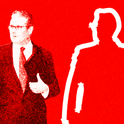The coronavirus crisis is not the right moment for a government of national unity, former Labour leader Neil Kinnock has told Prospect.
In comments ahead of the Labour leadership results on Saturday, Kinnock weighed in on a debate animating Westminster, saying that any “nominal" GNU today would “be useless and diminish confidence in democracy.”
Recent days have seen various political figures call for a cross-party pact to govern during the pandemic, with George Freeman, Conservative MP and former party policy chief, among them.
But Kinnock, who led Labour from 1983-1992 and is credited with bringing the party back to electability, poured cold water on the idea, saying any “deep-rooted” pact “would require changes in policy stances that are only likely and—crucially—credible in time of war.”
His words will be noted by Keir Starmer, who is expected to be announced as new Labour leader tomorrow. Starmer has so far kept relatively quiet on the coronavirus issue but is reportedly refusing to rule out a GNU.
“There are several ways for political parties to manifest common purpose without a government of national unity,” Kinnock added. Some politicians have suggested stronger working relationships stopping short of a full pact.
“I think it best,” Kinnock continued, “for opposition parties to ask reasoned and robust questions and to avoid ‘point scoring,’ while accurately drawing attention to deficiencies.
“The government, meanwhile, should be truthful and candid in imparting news and policy decisions.”
Winston Churchill and Clement Attlee famously formed a government of national unity during the Second World War. In the coming days Prospect will consider whether such an idea is appropriate in the current climate, with contributions from Vince Cable, David Owen and others to be published on the website in due course.
Neil Kinnock: Now is not right time for a government of national unity
The political grandee sounds warning on eve of his party’s leadership results
April 03, 2020

Former Labour Party leader Neil Kinnock . Photo: Jane Barlow/PA Archive/PA Images












